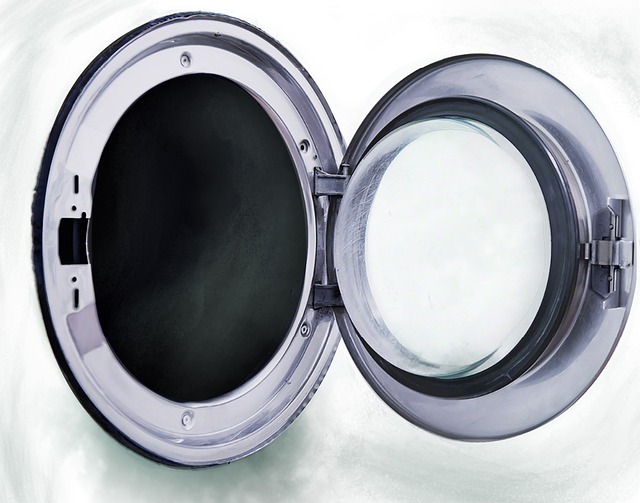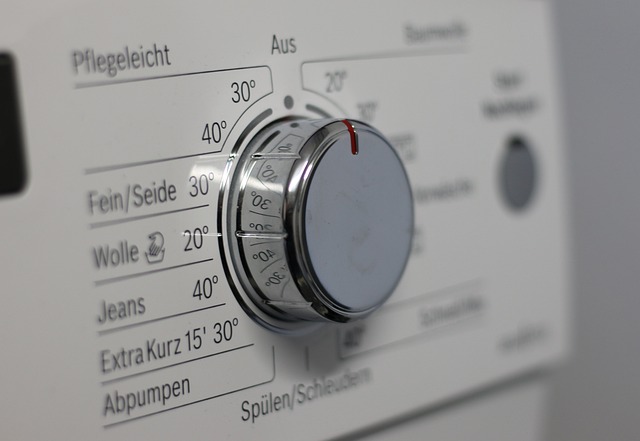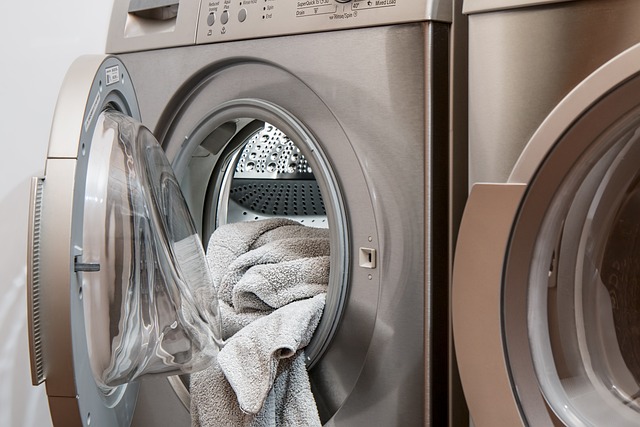Have you ever been startled by your washing machine suddenly emitting a series of beeps? You’re not alone! Washing machines can produce a beeping sound to alert users of various issues during the laundry cycle.
Here are some possible reasons for beeping your washing machine:
- Unbalanced load
- The door is not closed properly
- Error in the control panel (Codes and Malfunctions)
- Cycle completed notification
- Low water pressure
- Drainage issue
- Overheating or malfunctioning sensor
- Electrical and Power Problems:
Possible Reasons for Beeping in Your Washing Machine: Troubleshooting Guide

A beeping washing machine can be a frustrating and confusing experience for any homeowner. When your trusty appliance starts making unexpected noises. It’s essential to understand the possible reasons behind the beeping.
In this comprehensive troubleshooting guide, we will explore the most common causes of beeping in washing machines. By the end of this article, you’ll be equipped with valuable insights to tackle the issue head-on and restore your washing machine to its optimal functionality.
Door/Lid Issues
One of the primary culprits behind a beeping washing machine is an improperly closed door or a faulty door/lid switch. These safety mechanisms are designed to prevent the machine from starting when the door is open.
Error Codes and Malfunctions
Modern washing machines are equipped with advanced technology that can display error codes on the control panel. These codes serve as diagnostic tools, signalling specific malfunctions or issues within the machine.
You must understand these error codes are crucial to deciphering the cause of the beeping sound.
Water and Drainage Problems
The beeping may also stem from water-related issues within the washing machine. A clogged or blocked drain hose can disrupt the drainage process and prompt the machine to beep.
Electrical and Power Problems
Electrical disturbances can lead to beeping in your washing machine. Power surges or outages can disrupt the normal operation of the machine, causing it to beep unexpectedly.
Unbalanced Load
An unbalanced load inside the washing machine can cause it to vibrate excessively and produce beeping alerts. Experiencing beeping sounds from your washing machine can be alarming, but armed with the knowledge from this troubleshooting guide, you can now tackle the issue with confidence.
A Comprehensive Guide to Troubleshooting and Solutions
In this comprehensive guide, we will explore the most frequently encountered error codes and their corresponding meanings.
From “E1” for water inlet issues to “F2” for drain pump malfunctions, we’ll break down each code and offer actionable solutions to tackle the problems.
- E1: Water Inlet Issues
Meaning: This error code indicates a problem with the water inlet valve or the water supply. It could be due to a clogged inlet valve, low water pressure, or a faulty water inlet valve.
- E2: Water Drainage Problems
Meaning: The E2 error code suggests an issue with the drainage system. It may be caused by a clogged drain hose, a blocked pump filter, or a malfunctioning drain pump.
- F2: Drain Pump Malfunction
Meaning: The F2 error code signifies a problem with the drain pump. It may be due to a blocked pump filter, a malfunctioning pump motor, or a foreign object obstructing the pump impeller.
- E3: Overloading
Meaning: The E3 error code indicates that the washing machine is overloaded. Overloading the machine can strain the motor and cause excessive vibrations during the spin cycle.
- F5: Door/Lid Not Closed
Meaning: The F5 error code indicates that the door or lid of the washing machine is not securely closed. Ensure the door/lid is properly shut to clear this error.
- E4: Excessive Foam
Meaning: The E4 error code suggests excessive foaming during the wash cycle. This can happen if too much detergent is used or if the wrong type of detergent is used.
- F6: Motor Fault
Meaning: The F6 error code signifies a fault with the motor or its circuitry. It may be due to a broken motor winding or a faulty motor control board.
- E5: Unbalanced Load
Meaning: The E5 error code indicates that the washing machine’s load is unbalanced. Re-distribute the laundry evenly inside the drum to resolve this error.
- F9: Water Level Sensor Issue
Meaning: The F9 error code points to a problem with the water level sensor. It may be caused by a faulty sensor or a blocked pressure hose.
- E6: Heating Element Fault
Meaning: The E6 error code suggests an issue with the heating element. It may be due to a broken or malfunctioning heating element, affecting water temperature during certain cycles.
- F11: Communication Error
Meaning: The F11 error code indicates a communication problem between the various electronic components of the washing machine. It may require professional diagnosis and repair.
- E7: Door Locking Mechanism Issue
Meaning: The E7 error code suggests a problem with the door locking mechanism. It may be caused by a faulty door lock switch or a damaged door interlock.
Please note that the error codes and their meanings can vary depending on the brand and model of your washing machine.
Always refer to your washing machine’s user manual or manufacturer’s website for the specific error code interpretations for your model.
Troubleshooting Steps for a Beeping Washing Machine
A beeping washing machine can disrupt your laundry routine and leave you wondering what’s gone wrong. Don’t fret! In this comprehensive troubleshooting guide.
We’ll walk you through step-by-step solutions to address the beeping issue.It gets your washing machine back to its normal operation. You have to follow these troubleshooting steps and you’ll be able to identify the root cause of the problem and resolve it efficiently.
Safety First
Before embarking on any troubleshooting, prioritise safety. Ensure your washing machine is unplugged to avoid any risk of electric shock. Familiarise yourself with the manufacturer’s safety guidelines and precautions for working on your appliance.
Check the Door/Lid
A common reason for a beeping washing machine is an improperly closed door or a malfunctioning door/lid switch.
Inspect the door/lid to ensure it’s firmly shut. If the issue persists, examine the door/lid switch for any damage or irregularities that might be causing the beeping.
Interpret Error Codes
Modern washing machines often display error codes on the control panel to indicate specific malfunctions. Refer to your machine’s user manual to interpret the error codes accurately. Understanding these codes will guide you in pinpointing the exact issue and finding the appropriate solution.
Water and Drainage Inspection
Beeping can also result from water-related problems. Check the drain hose and filter for clogs or obstructions that may hinder proper drainage. Ensure the water supply is adequate and the water inlet valve is functioning correctly. Verify that the machine detects the water level accurately.
Electrical Checks
Electrical issues, such as power surges or faulty wiring. It causes your washing machine to beep unexpectedly. Inspect the power outlet and circuit breaker to rule out power-related problems. Examine the machine’s wiring and electrical components for any signs of damage.
Balance the Load
An unbalanced load inside the washing machine can trigger beeping alerts. Spread the laundry evenly inside the drum to maintain a balanced load.
Overloading or underloading the machine can also cause beeping, so follow the manufacturer’s load capacity recommendations.
Utilise the Diagnostic Mode
If your washing machine features a diagnostic mode, activate it to gain valuable insights into the machine’s functioning. The diagnostic mode can help you identify specific issues and perform targeted troubleshooting.
Seek Professional Help
If you’ve followed all the troubleshooting steps and the beeping persists, or if you encounter complex issues beyond your expertise, don’t hesitate to seek professional assistance. Qualified technicians have the expertise and tools to diagnose and fix intricate problems.
When to Seek Professional Help for a Beeping Washing Machine

A beeping washing machine can be a source of frustration and confusion for homeowners. While many issues can be resolved through simple troubleshooting, some problems may require professional intervention. In this article, we’ll guide you on when it’s best to seek professional help for a beeping washing machine.
Recognizing the limitations of DIY troubleshooting and knowing when to call in the experts can save you time, effort, and potential risks.
Persisting Beeping Despite Troubleshooting
If you’ve followed the troubleshooting steps outlined in our previous articles and the beeping persists, it’s a clear indication that the issue may be more complex.
Persistent beeping alerts despite your efforts to identify the cause may require the expertise of a professional technician. They possess the knowledge, experience, and tools to diagnose and fix intricate problems effectively.
Error Codes You Can’t Decode
Modern washing machines often display error codes as a way to communicate specific malfunctions. While some error codes are straightforward, others may be more cryptic and challenging to interpret.
If you encounter error codes you can’t decode or understand you must seek professional help to ensure accurate diagnosis and appropriate solutions.
Electrical or Wiring Problems
Electrical issues can pose significant risks if not handled properly. If you suspect your washing machine’s beeping is related to electrical problems, such as power surges or faulty wiring, it’s best to avoid DIY electrical repairs.
A licensed electrician or an authorised technician is better equipped to handle electrical repairs safely and effectively.
Complex Mechanical Malfunctions
Washing machines are intricate appliances with numerous mechanical components. Beeping may indicate malfunctions in the motor, control board, or other internal mechanisms that require specialised knowledge to address. Professional technicians possess the expertise to navigate the complexities of these mechanical issues.
Under Warranty or Manufacturer’s Coverage
If your washing machine is still under warranty or covered by the manufacturer’s service agreement you have to seek professional help is the most prudent course of action.
Attempting DIY repairs may void the warranty or coverage, leaving you responsible for the costs. Professional technicians authorised by the manufacturer can provide service within the terms of the warranty.
Safety Concerns
Some washing machine issues may present safety hazards. It deals with electrical components or water-related problems. If you’re unsure of how to handle the problem safely or lack experience in appliance repair, it’s essential to prioritise safety and engage a qualified technician.
Conclusion
The conclusion of this comprehensive article on troubleshooting a beeping washing machine summarises the key takeaways. It emphasises the importance of seeking professional help when necessary. It reiterates the value of understanding the limitations of DIY troubleshooting and recognizing when expert intervention is needed.
The overview highlights that despite attempting various troubleshooting steps, some beeping issues may persist. In such cases, the conclusion stresses the significance of reaching out to a professional technician who can accurately diagnose and address complex problems effectively.
Furthermore, the overview emphasises the importance of safety throughout the troubleshooting process, particularly when dealing with electrical components or mechanical malfunctions. It underscores the need to prioritise safety and avoid attempting repairs beyond one’s expertise.
The conclusion also addresses the relevance of manufacturer’s warranties and service agreements. You have to seek professional help from authorised technicians ensures compliance with warranty terms and avoids potential costs resulting from voiding the warranty.
Overall, the conclusion serves as a final reminder to homeowners that seeking professional help for a beeping washing machine is a prudent step. You have to ensure the appliance’s optimal functionality and avoid unnecessary risks.

